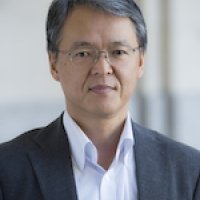A "Normal" Japan? Comparisons with South Korea, China, and ASEAN
Original Image by FutureAtlas
This event has been rescheduled due to an weather related cancellation.
Changes in Japanese foreign policy over the past two decades have led to a rise in the concept of a “normal” Japan. What constitutes a normal state, however, has led to confusion. The Wilson Center’s Japan scholar and Keio University political science professor Yoshihide Soeya argues that the changes to date have happened within the postwar framework rooted in the so-called peace constitution and the U.S.-Japan security treaty. He notes, though, that the evolution has been opaque because frustrations directed against these parameters have provided incentives for change without necessarily shaking the framework itself fundamentally.
Soeya argues that ASEAN understands this through its experiences with Japan in the past decades. Japan's relations with South Korea, however, have been shaken by a paradox in the relationship, where the more their diplomatic agenda and interests converge the stronger the resistance gets against such convergence. Meanwhile, he states that a similar paradox exists in Sino-Japanese relations as well, where deeper interdependence on the economic front has required the Chinese leadership to keep distance from Japan by taking advantage of the so-called history problem, particularly for strengthening its legitimacy as the victor against the Japanese militarism.
We hope you will be able to join us for this discussion on Japan’s changing foreign policy.
Speaker

Director, Institute of East Asian Studies and Professor of Political Science, Faculty of Law, Keio University, Japan
Hosted By

Indo-Pacific Program
The Indo-Pacific Program promotes policy debate and intellectual discussions on US interests in the Asia-Pacific as well as political, economic, security, and social issues relating to the world’s most populous and economically dynamic region. Read more


